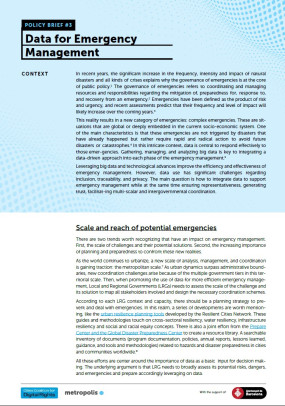Policy Brief: Data for Emergency Management
Date of publication
Topic
Smart city and technology
Type of resources
Policy Brief

Data_for_Emergency_Management_.pdf262.21 KB

